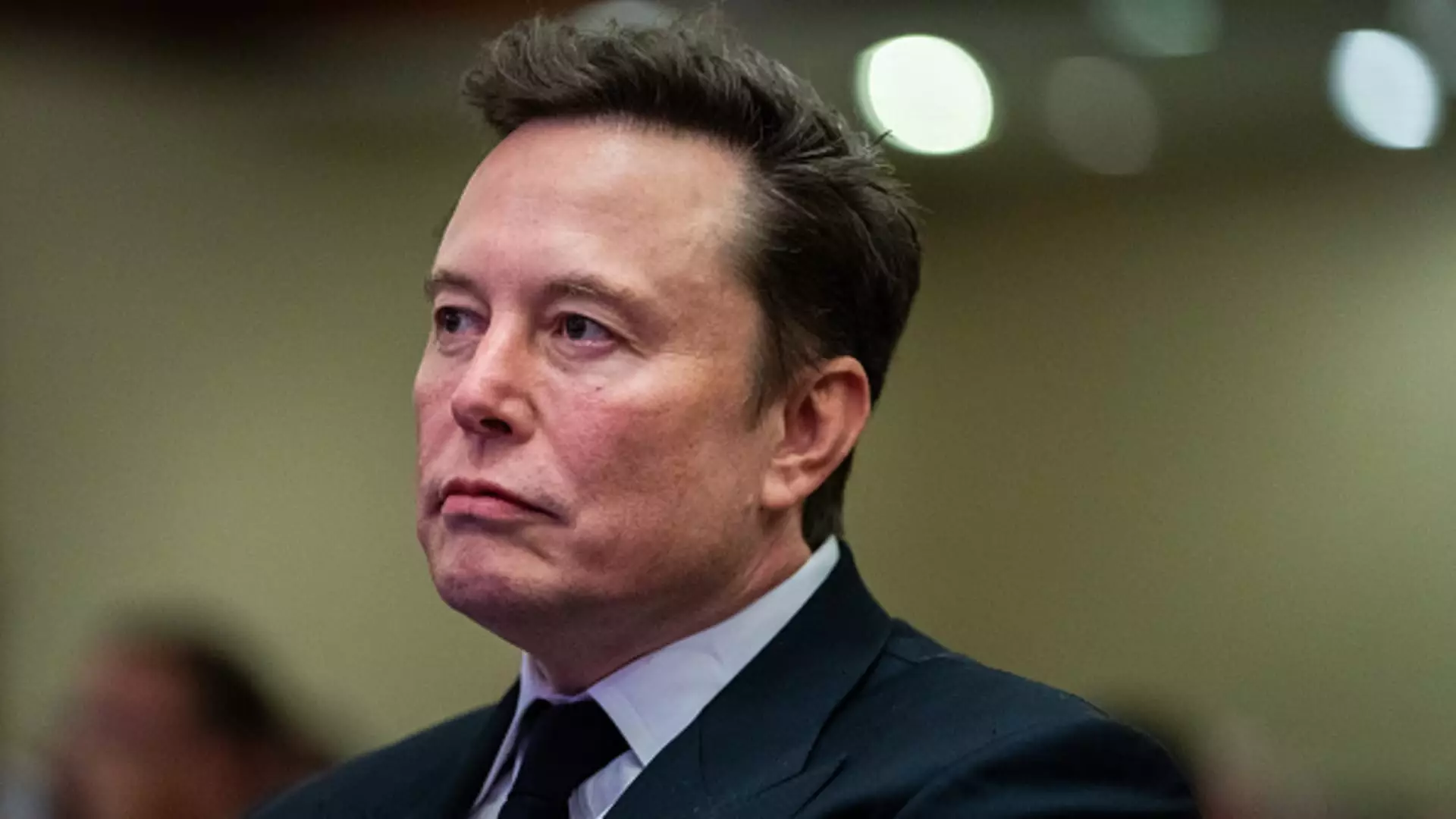In a recent turn of events, tech mogul Elon Musk has found himself at the center of a contentious debate within conservative circles. Accusations of censorship arose after numerous right-leaning accounts reported losing access to premium features on X, Musk’s rebranded social media platform formerly known as Twitter. The situation escalated quickly, as at least 14 prominent conservative users claimed their blue verification badges had been revoked, significantly limiting their capabilities when it came to monetization and broader audience engagement. This sudden shift has sparked outrage, with reports suggesting that the number of affected accounts may be even higher.
On the surface, the incident appears to serve as a chilling reminder of the volatile relationship between big tech platforms and political discourse. The accounts in question not only lost their verification status but also faced the daunting prospect of diminished reach and influence. Many of these users expressed concern over their continued ability to voice their opinions, considering the stakes of monetization in sustaining their online presence. As conservative voices increasingly rely on social media to amplify their messages, the implications of such moves can be profound.
Elon Musk, who has positioned himself as a champion of free expression since acquiring Twitter in 2022, now finds this narrative teetering on the brink of contradiction. Initially, Musk portrayed his acquisition of the platform as a means to redress what he claimed was a systemic bias against conservative viewpoints. However, the recent actions taken against right-wing accounts accused of openly criticizing him and his views on immigration have led to disillusionment among those who once defended his ethos.
Just hours before the outcry began, Musk shared a post that hinted at the algorithmic mechanics underlying user experience on X. He stated that users blocked or muted by credible accounts would experience a decline in reach. While this could theoretically explain some of the diminishing engagement, the timing of his post led many to suspect a more deliberate attempt to stifle opposing voices. Critics argued that Musk’s message rather served as a confirmation of their fears—pointing to the growing suspicions of shadowbanning aimed at silencing conservative dissent.
This incident doesn’t happen in a vacuum; it’s set against the backdrop of an immensely heated dialogue surrounding future immigration policies under the reign of a potential President Donald Trump. Loyalists within the anti-immigration faction have expressed intense dissatisfaction with prominent figures like Musk, who emphasize a more open immigration policy. The intertwining of digital platforms with these political machinations raises questions about the role of social media in shaping political narratives and the implications of corporate actions on public discourse.
Particularly concerning is the relationship between certain media brands and the conservative accounts affected by X’s recent actions. Preston Parra, a significant influencer for ConservativeOG, emphasized his belief that X’s moves represent a “political takedown.” He perceives Musk’s operations as a direct assault on the foundational tenets of the right-wing movement. Such sentiments reflect a broader concern that tech CEOs, often characterized by their elite status and liberal leanings, hold disproportionate influence over the narratives that shape the conservative base.
As inclinations toward tech-driven solutions and governance continue to evolve, the ramifications of Musk’s maneuvers will undoubtedly echo throughout the conservative landscape. With preliminary joint ventures announced regarding a “Department of Government Efficiency,” and subsequent scrutiny over Musk’s handling of immigration rhetoric, a lingering question remains. How will the right respond to what many perceive as a betrayal from one of their own?
With key tech figures being scrutinized not just for their business decisions but their political allegiances, the trust that once buoyed Musk’s standing within conservative communities is increasingly fragile. The intersection of social media, politics, and individual voices is a complex web, and as Elon Musk navigates through this, the reactions of those he purportedly sought to empower will play a pivotal role in shaping his legacy within the digital arena. The need for transparency and genuine dialogue in this environment has never been more essential, as both tech leaders and users alike grapple with the implications of censorship in an age where free expression is heavily intertwined with economic survival.

Leave a Reply